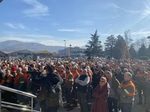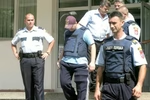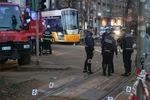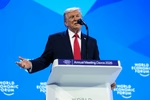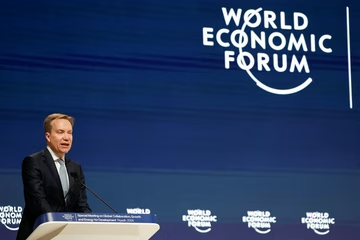
Russia's Embassy does not support a communique issued on Wednesday by the Peace Implementation Council Steering Board (PIC SB) - a body overseeing Bosnia's peace - saying that the document is biased and does not contribute to the improvement of the internal political dialogue in Bosnia.
“We were not able to support a large number of the assessments and messages in the document, we do not share the views of our partners in the Steering Board on the situation in the country,” the statement by Russia's Embassy said, adding that the conclusions in the communique are “biased” and do not take into account the true situation in the country while ignoring pressing issues.
International officials overseeing the implementation of Bosnia’s 1995 peace agreement welcomed on Wednesday the nomination of the country’s prime minister that came after a year-long quarrel over Bosnia’s potential NATO membership.
“The PIC SB recalled specifically the provisions of the GFAP (General Framework Agreement for Peace) under which the entities are obliged to comply with the decisions of Bosnia and Herzegovina’s institutions and to provide the necessary assistance to the government to enable it to honour the international obligations of Bosnia and Herzegovina. Functionality of the state-level institutions should be enhanced, rather than undermined,” the PIC SB communique said.
It repeated its earlier statement regarding conclusions which the parliament of Republika Srpska (RS), Bosnia’s Serb-majority semi-autonomous entity, adopted in early November. Those include, among other things, activities aimed at abolishing the office of Bosnia’s international administrator and reversing a series of post-war reforms in the country.
“The interests of all levels of government are best served not by rolling-back essential reforms, but by implementing forward-looking reforms that support and strengthen the security, stability and prosperity of BiH, and promote local ownership,” the PIC SB communique said.
But according to the Russian Embassy, the latest statements from the PIC SB do not “contribute to the improvement of the internal political dialogue in the country and the peacebuilding process.”
“To the contrary, the bias within this communique, the wrong interpretation of the reasons and the consequences of internal political disagreements, make the process of finding a way to ensure inter-ethnic reconciliation, which is in itself a complicated process, even more difficult,” the Embassy said.
“We cannot accept the artificial efforts toward centralisation and unitisation of the state, which is contrary to the logic of the Constitution and the will of the people in Bosnia and Herzegovina,” it said.
The PIC SB also discussed Bosnia’s migrant crisis as an issue under “exclusive competencies of the state.” It emphasised the need to support state-level authorities to perform their duties and the need to strengthen cooperation between all government levels, “including sharing the burden of hosting migrants.”
Republika Srpska has been refusing to set up any migrant centres in its territory, which means the migrant crisis is only a serious problem in the other half, the Federation (FBiH) - shared mostly between Bosniaks and Croats.
According to the Russian Embassy, the PIC SB does not have the competencies to discuss institutional aspects regarding the migrant crisis.
“There is no doubt that the crisis Bosnia is facing for the past couple of years, which involved thousands of migrants, was artificially created and it tied primarily to the lack of a wish by the European Union to objectively assess the reasons for the situation and to propose real solutions for overcoming the crisis,” the Embassy said.
Accommodating the migrants “whom the European Union allowed to cross its territory before they arrived on the territory of Bosnia and Herzegovina” in the country is not the solution, it argued.
Kakvo je tvoje mišljenje o ovome?
Učestvuj u diskusiji ili pročitaj komentare





 Srbija
Srbija
 Hrvatska
Hrvatska
 Slovenija
Slovenija










